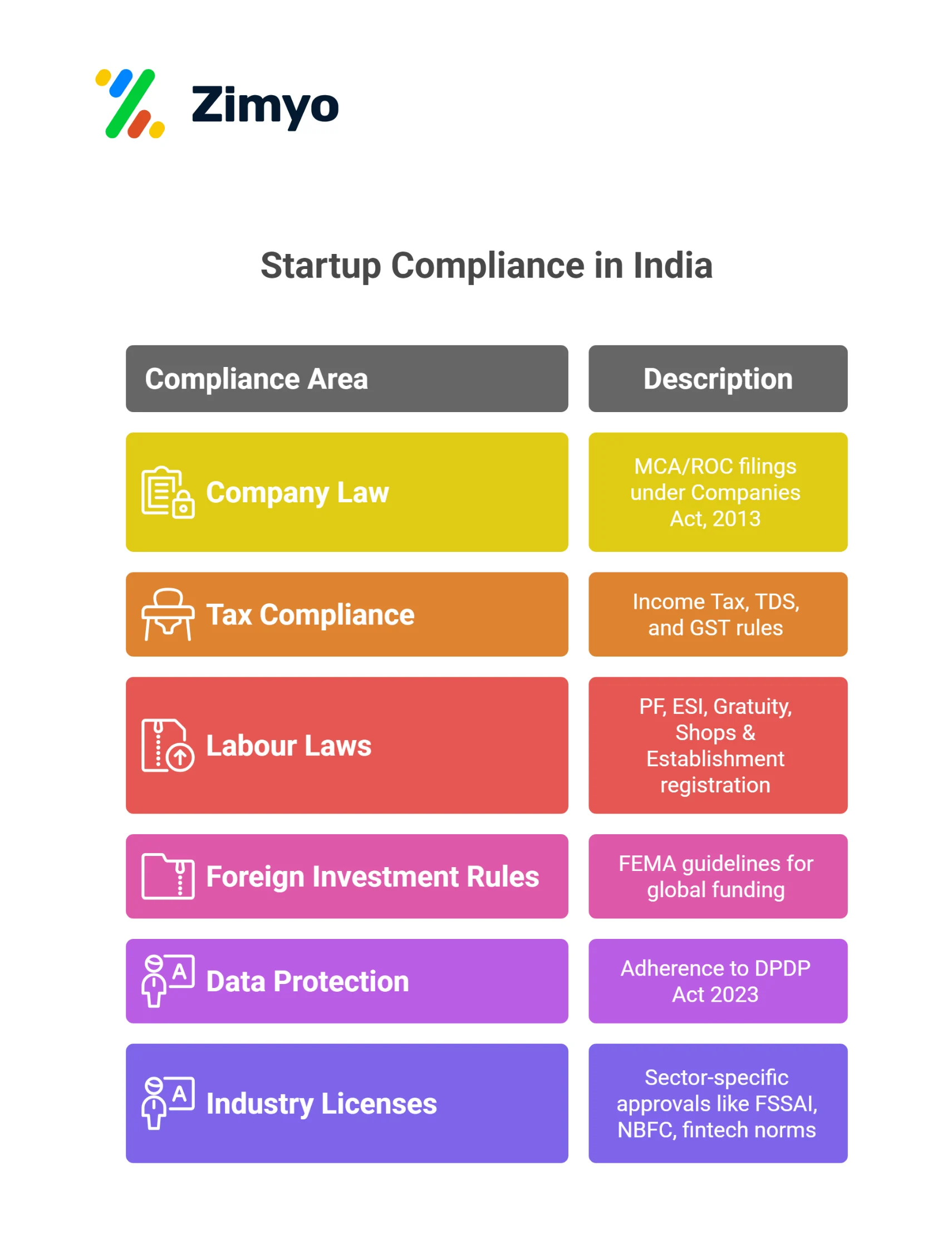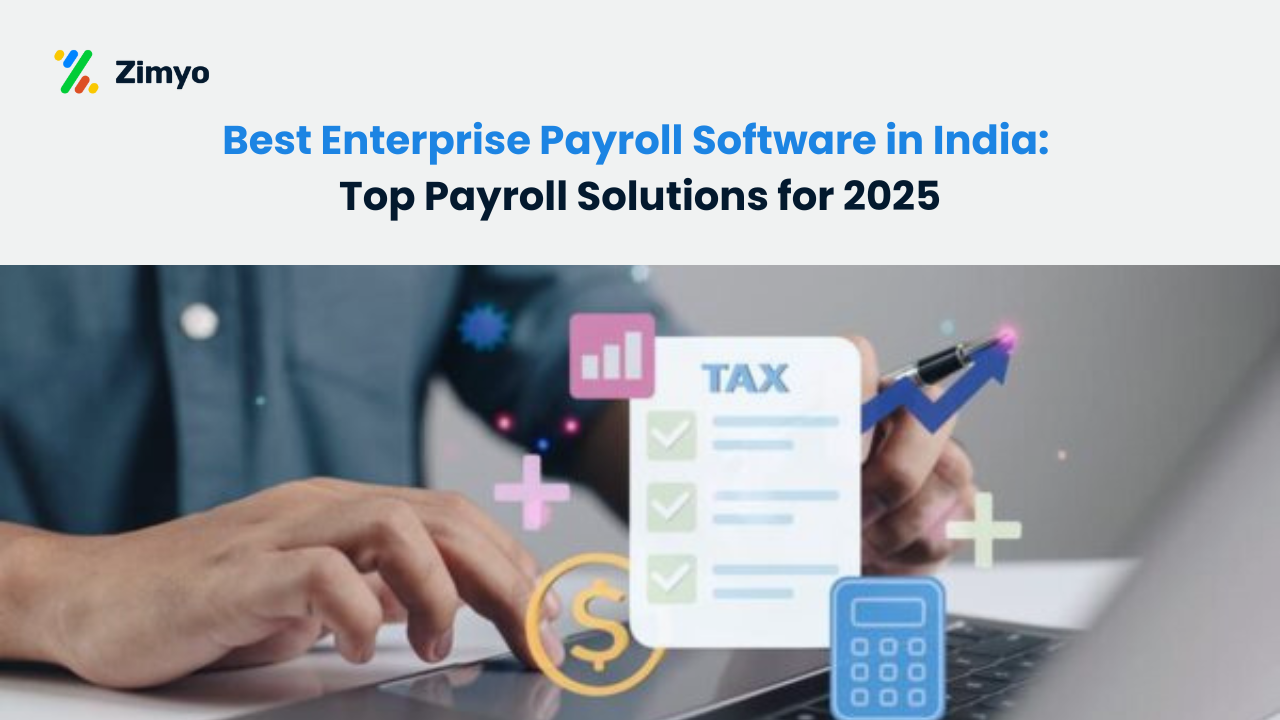A comprehensive, founder-first guide to keeping your startup safe, investment-ready, and scalable.
When building a startup in India, the last thing on your mind is compliance. Between chasing customers, closing your first deals, writing code, recruiting talent, and convincing investors to believe in your vision, compliance feels unnecessary friction.
And yet, quietly in the background, it is one of the strongest foundations of a healthy business.
Founders don’t realize this until:
- A due diligence checklist lands in their inbox,
- a VC requests ROC filings from two years ago,
- a client requests your GST history, or
Your CA flags a missed return with penalties running into thousands.
At this point, compliance is no longer boring; it becomes urgent. The truth is simple:
Every step of compliance is a layer of armour around your startup.
It builds trust, protects your cap table, prevents penalties, strengthens governance, and ensures you are always ready for investors, MNC clients, or acquisitions.
The following guide breaks down everything that a founder operating in India must know about compliance -incorporation to GST, payroll, ROC filings, ESOPs, labor laws, data protection rules, and more.
What exactly is Startup Compliance?
Startup compliance essentially refers to legal, tax, payroll, employment and governance rules that need to be followed by Indian companies under Indian laws like:
- Companies Act, 2013 (MCA/ROC compliance)
- Income Tax Act & TDS rules GST laws Labor laws (PF, ESI, Gratuity, Shops & Establishment Act)
- FEMA for foreign investments
- DPDP Act 2023 (data protection)
- Industry-specific licensing – FSSAI, NBFC, fintech regulations, etc.
In other words,
Compliance = a legally clean company + investor-ready documents + no hidden risks.
The saddest thing in life is seeing beautiful potential never reached.
1. Company-Level Compliance (MCA/ROC) — Your Legal Backbone
On the day you incorporate your startup; you officially enter the compliance world. Many founders think incorporation is the finish line. Actually, it’s the starting point. Annual ROC Compliance (2025) for Startups – Mandatory
| Compliance Item | What It Means | Key Due Date |
|---|---|---|
| AOC-4 | Filing audited financial statements | Within 30 days of AGM |
| MGT-7 | Annual return (shareholding, management details) | Within 60 days of AGM |
| ADT-1 | Auditor appointment/renewal | Within 30 days of AGM |
| MBP-1 | Disclosure of director interests | Every financial year |
| DIR-3 KYC | Director KYC filing | By 30th September |
| Board Meetings | At least one every 120 days (4 per year) | Quarterly |
Common founder mistakes
- Failure to maintain statutory registers
- Missing minutes of board meetings
- Not updating Director KYC
- Failure to file PAS-3 for allotment
- No documentation on the creation of the ESOP pool
ROC penalties are simple and harsh:
₹100 per day per form.
Late filings during investor due diligence can delay or even derail rounds. Too many founders underestimate just how seriously VCs take at compliance hygiene.
2. Taxation & GST Compliance — If Money Moves, Tax Follows
When you start to generate revenue, pay vendors, or hire employees, you can’t avoid compliance with tax regulations.
Direct Taxes (Income Tax)
Startups have to fulfill numerous direct-tax-related compliances:
Key Requirements
- PAN and TAN registration
- TDS deduction on payments against professional tax, rent, and contractor payouts.
- Quarterly TDS Returns (24Q/26Q)
- Advance tax payments – if applicable
- Corporate Income Tax Return (ITR-6) — due 31st October
Founders often forget that Deducting TDS and not depositing it within the due date results in increasing penalties and interest.
3. GST Compliance -When Your Startup Begins to Sell
GST laws apply when:
- Your revenue crosses ₹20 lakh (services) or ₹40 lakh (goods)
- You sell across states
- You sell online
Once registered, GST compliance becomes a monthly routine.
Monthly GST Filings
- GSTR-1 — sales data
- GSTR-3B — summary return
Annual
- GSTR-9 — annual reconciliation
Penalties
- ₹50/day late fee CGST+SGST
- Interest on tax payable Most ignored GST rule by founders
Even when you have zero revenue, you MUST file a Nil return.
Skipping months leads to the portal getting locked, and thereafter, no filing can be made without clearing old dues.
4. Labor Law, Payroll & HR Compliance - Don’t Ignore Your People
Once you hire your first employee, labor laws apply. Founders often assume that
“We are small, so labor laws don’t apply yet.”
In fact, even 2-employee benefits startups are required to follow:
- Offer Letters
- Salary slips
- Shops & Establishment registration Maternity Act provisions
- POSH: Sexual Harassment Compliance
Contract of Employments
Every hire shall receive:
- Position applied for and remuneration
- Probation and notice-period conditions
- Assigning IP
- Confidentiality & non-solicitation clauses
- Dispute resolution terms
Verbal agreements are NOT legally valid in disputes.
PF, ESI & Gratuity: All You Need to Know
Law | When It Applies | Key Requirement |
EPF (PF) | 20+ employees earning < ₹15,000 | 12% employer + 12% employee contribution |
ESI | 10+ employees earning < ₹21,000 | Mandatory ESI registration |
Gratuity | 5 years of service + 10+ employees | Payable; registration required early |
- Monthly payslips
- Salary structure aligned with income tax rules
- Correct deduction of TDS
- PF/ESI deposits
- EPFO/ESIC monthly returns
- Attendance and leave records
Compliance with Payment of Wages Act Most early-stage startups rely on the HRMS payroll software like Zimyo, because manual payroll invites errors, penalties, and employee mistrust.
5. Fundraising & FEMA Compliance - The Most Scrutinized Area
Any time money comes into a company, especially from investors; compliance requirements grow exponentially. Cap Table & Share Issuance Every new allotment shall follow this flow:
- Board resolution
- Shareholder resolution, if needed
- Issue of share certificates within 60 days
- Filing PAS-3 for allotment
- Updating statutory registers
- Updating cap table-many forget about this! Foreign Investment (FDI) – FEMA Rules If your funding comes from a foreign investor: You need to file FC-GPR within 30 days of allotment of shares. Other compulsory documents:
- FIRC from bank
- Valuation certificate
- KYC from foreign investor’s bank
- Adherence to price guidelines
This makes VCs nervous when a startup has:
- Missing FC-GPR
- Messy cap table
- Unfiled share allotments
- ESOPs that were verbally promised
6. Contracts, IP & Data Protection
Startups are losing deals, IP, and even ownership rights because they are ignoring contracts.
Critical Contracts Every Startup Needs
General NDA: internal & external
- MSA (for customers) Vendor/ service agreements
- Employment contracts
- Freelancer IP assignment
- Founder agreements
- Equity/grant letters
- ESOP policy and grant documentation
- Intellectual Property
Most founders register a domain but forget their trademark.
Protect early:
- Brand name
- Logo
- App name
- Product name
- Copyright of website/app/code VCs always ask: “Is your trademark filed?” Otherwise, you may lose your brand later.
7. Data Protection Compliance — The DPDP Act Era
India’s Digital Personal Data Protection Act (DPDP) makes all businesses accountable for this, even small startups.
Needs common to all startups
- Collect data with consent
- Publish Privacy Policy & Terms of Use
- Data security controls shall be implemented.
- Log user consents
- Control the access of employees
- Report data breaches
Penalties depending on severity. Founders tend to ignore data compliance until such time as a client or investor insists on it.
Startup Compliance Calendar (Founder Edition)
Here is a quick, founder-friendly snapshot:
Activity | Frequency |
GST returns | Monthly |
TDS deposit | Monthly |
PF/ESI payments | Monthly |
TDS returns | Quarterly |
Board meeting | Quarterly |
ROC filings (AOC-4, MGT-7) | Annual |
Director KYC | Annual |
Income Tax Return (ITR-6) | Annual |
Why Compliance Matters More Than Ever in 2025
Here’s the part founders don’t hear enough:
- Investors now do deeper due diligence
- All ROC filings
- Past 3 years GST returns
- PF/ESI compliance
- Share certificates
- ESOP documentation
- Loan agreements
- Vendor contracts
- And missing even one can tie up funding.
- Clean compliance is required by enterprise clients
- Large companies are asking for:
- GST history
- PF/ESI compliance
- Data security policies
- Vendor onboarding documents
- Indemnity clauses Without these, one cannot become a vendor.
- Mergers & acquisitions fail because of compliance debt Acquirers tend to avoid startups with the following characteristics: messy cap tables faulty share allotments missing GST filings unpaid TDS unregistered trademarks ESOP misstatements.
- The penalties mount silently. One missed return can spiral into thousands of rupees over months.
- Compliance builds credibility Investors repeatedly say, “A disciplined startup is easier to back.”
Choosing the Right Payroll Software: Your Compliance Ally
Handling payroll compliance on your own might feel affordable when you’re two or three, but the instant your headcount grows, so does the risk from manual errors. Good payroll software is not just a time-saver; it’s your co-pilot in compliance. The right tool automates PF, ESI, and TDS deductions, generates payslips, manages investment proofs, and keeps a proper audit trail — all while updating with statutory changes. Imagine running your payroll with a few clicks, never worrying about missed filings, and having a clear, exportable ledger when a VC or client asks for payroll registers. Zimyo Payroll provides exactly that level of automation and control—making compliance invisible, but rock solid.
Conclusion
Compliance Is Not a Cost — It’s Insurance for Your Startup. No founder starts up a venture to fill out forms or file returns. But compliance is part of building a long-lasting company. Think of it this way: Product gets you users. Compliance gets you trust. Product build growth. Compliance removes friction. Products may win against customers. Compliance wins against investors. Strong compliance in India is not a burden; it is an advantage to growth. It helps you raise faster, sign bigger clients, protect your IP, attract top talent, and scale without fear. Because at the end of the day: “If product is king, then compliance is the crown that keeps it from falling.”!
FAQs
What is compliance in India?
Compliance in India refers to following all laws, regulations, and government-mandated rules that govern how companies operate. This includes legal, financial, and labour-related requirements that businesses must meet.
What are the compliances of startups in India?
Start-ups are required to comply with company law regarding ROC filings, tax & GST returns, payroll laws concerning PF/ESI, labour laws, FEMA for foreign investments, and DPDP data protection rules.
These compliances ensure legal validity, financial transparency, and investor readiness.
What pains do startup founders face?
Founders commonly face challenges in managing compliance, cash flow, hiring, and scaling, all while building a product and revenue.
The accumulation of filings, documentation, or statutory deadlines makes compliance a big obstacle.
What are the 7 stages of startup?
The seven stages usually include: Ideation, Validation, MVP, Early Traction, Growth, Scaling, and Maturity/Exit.
Each stage requires different levels of compliance, funding, and operational discipline.
What is the significance of compliance in a startup?
Compliance legally protects the company from penalties, and it helps to derive credibility among investors, clients, and employees.
Further, It makes sure that your startup is always due-diligence ready, scalable, and safe from regulatory risks.
What are the 7 pillars of compliance?
The seven pillars typically include: Governance, Risk Management, Policies, Training, Monitoring, Reporting, and Continuous Improvement. Put together, they create a robust compliance framework that keeps the business disciplined and audit-ready.









